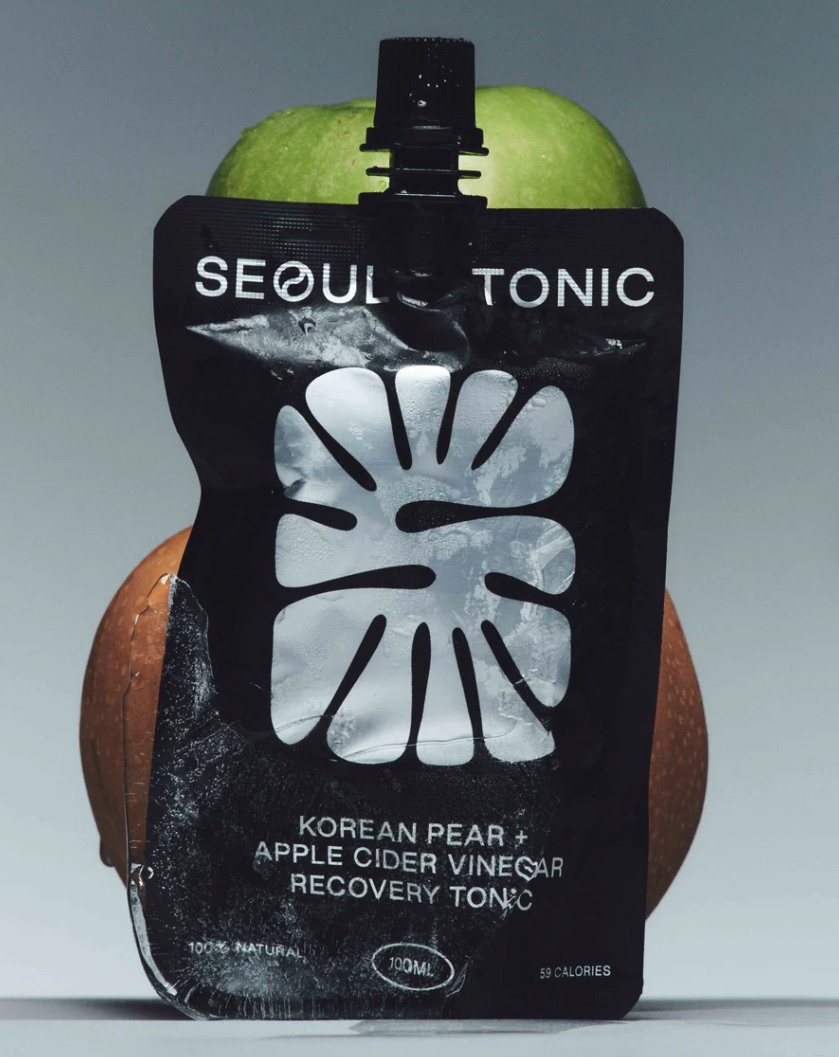Seoul Tonic's Growth From Garage to 2,000 Retailers
Earlier this week, I was digging through some CPG startup success stories when I stumbled across Sophie Hood's interview on Female Founder World about her Seoul Tonic journey. Sophie launched a functional beverage from her Bondi Beach garage in December 2022 while working full-time at Red Bull. Two years later? She's in 2,000 retailers across Australia, New Zealand, the UK, and the US.
Here's how she did it and the key lessons every founder can learn from her journey.

The Product That Solved a Real Problem
I don't know much about the beverage industry, so in that sense, I might be an unusual choice to dissect this success story. But maybe that's exactly why I'm the right person to talk about it. Because I am the consumer. I'm the guy who's always looking for something that actually works, something that cuts through the wellness nonsense and delivers on its promises.
What struck me about Seoul Tonic's rise is that while everyone else was playing by the same tired playbook, Sophie Hood threw out the rules and built something that actually resonated.
Seoul Tonic isn't just another wellness drink. Sophie created a functional beverage rooted in East Asian methodology that helps the liver naturally detoxify alcohol. Essentially a preventative approach to drinking with simple ingredients. "This category doesn't really exist in Western markets," Sophie explains. "In South Korea, people have been drinking something for their liver for generations. It's preventative East Asian wellness versus our typical Western band-aid solutions."
The second product focuses on digestion and rehydration, leveraging proprietary extraction methods that make the natural ingredients highly effective. It's positioned as both a health beverage and a drinking companion. Creating a unique value proposition that immediately sets it apart.
The Hyper-Local Launch Strategy That Created Buzz
Without money for paid advertising or employees, Sophie used what she calls a "local community approach" that other founders should steal immediately:
Instead of launching in one store across multiple cities, Sophie focused exclusively in her Bondi Beach neighborhood and surrounding suburbs. She got Seoul Tonic into every possible retailer: health food stores, smoothie joints, local liquor shops, and eventually major chains like Woolworths and BWS.
The result? "If someone saw it in one store, they would go to their health food store three doors down, then their smoothie joint three doors down, then their local liquor shop—they would just keep seeing it over and over again," Sophie recalls. "Everyone was asking, 'What is this new product?'"
This created the illusion of being everywhere while actually being hyper-focused. For locals, Seoul Tonic felt like a major brand because it had local market dominance.
Leveraging Personal Networks (The Right Way)
Sophie didn't just rely on strangers, she activated her existing network, but in a way that felt authentic, not forced. Having friends in the creative scene and modeling industry meant organic social proof when they posted about the product. "I had a lot of friends who were models or in the creative scene, and they were just drinking it and shooting it because they were helping me out."
The key here isn't having famous friends, it's mobilizing whatever network you do have to create authentic word-of-mouth marketing.
The Content Strategy That Drives Sales
Sophie's TikTok approach follows the "document, don't create" philosophy. She shares behind-the-scenes content about landing major retail deals, showing her pitch decks, and explaining how she negotiates without paying traditional marketing fees.
"Instead of paying a $5,000 shelf fee, I'll create content of me going into Chemist Warehouse and flood Instagram with organic content," she explains. This turns marketing costs into content opportunities.
The game-changer was bringing in Chessie, a content creator who was already a customer. Starting with just 7,000 followers, Chessie has grown to over 30,000 while creating entertaining, non-salesy content that drives brand awareness. "95% of our business is retail, so people see the brand on TikTok and then go to Woolworths to try it."
The Real Truth About "Overnight Success"
Seoul Tonic's story proves that authenticity isn't a marketing buzzword, it's a business strategy. While everyone else was playing it safe with focus groups and market research, Sophie built something that actually solved a problem people didn't even know they had.
But here's what the Instagram posts don't show: Sophie hasn't paid herself a salary. She's been grinding nights and weekends while working full-time. She's dealt with legal threats and blackmail attempts. She's been relentless with buyer outreach and strategic about every dollar spent.
That's the real blueprint. It's not about having the perfect product or the biggest marketing budget. It's about being authentic in a world full of copycats, strategic when everyone else is scattered, and relentless when others give up.
Seoul Tonic didn't just succeed because it's a good functional beverage. It succeeded because Sophie Hood understood something most founders miss: authenticity isn't just about your brand story, it's about how you build, how you market, and how you connect with people who share your worldview.
That's a lesson worth learning, no matter what industry you're in.
From,